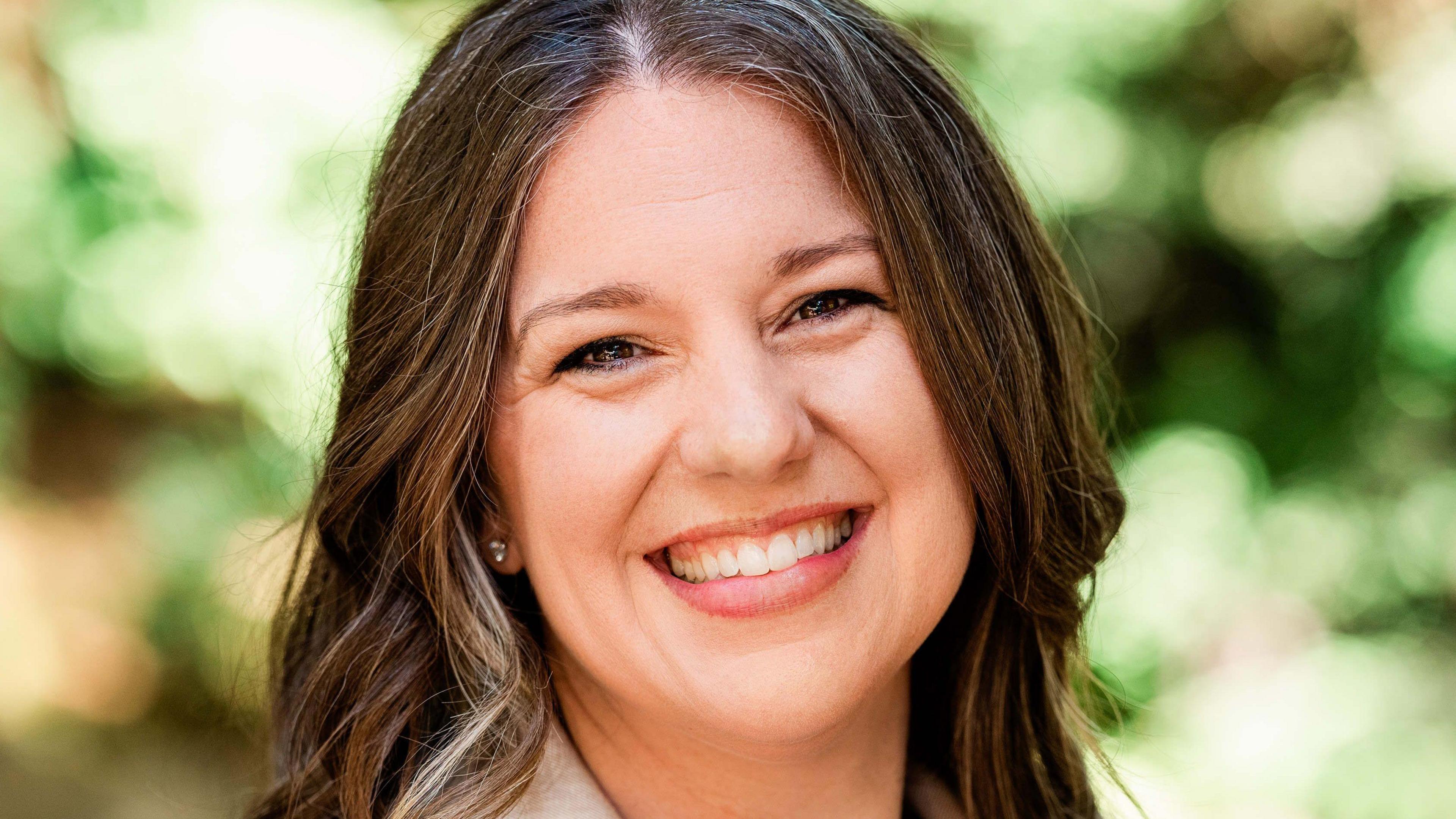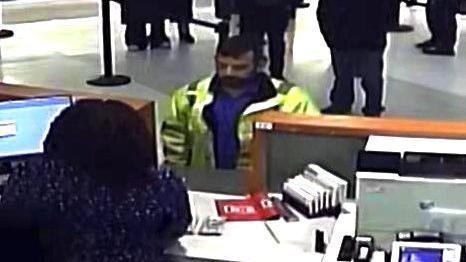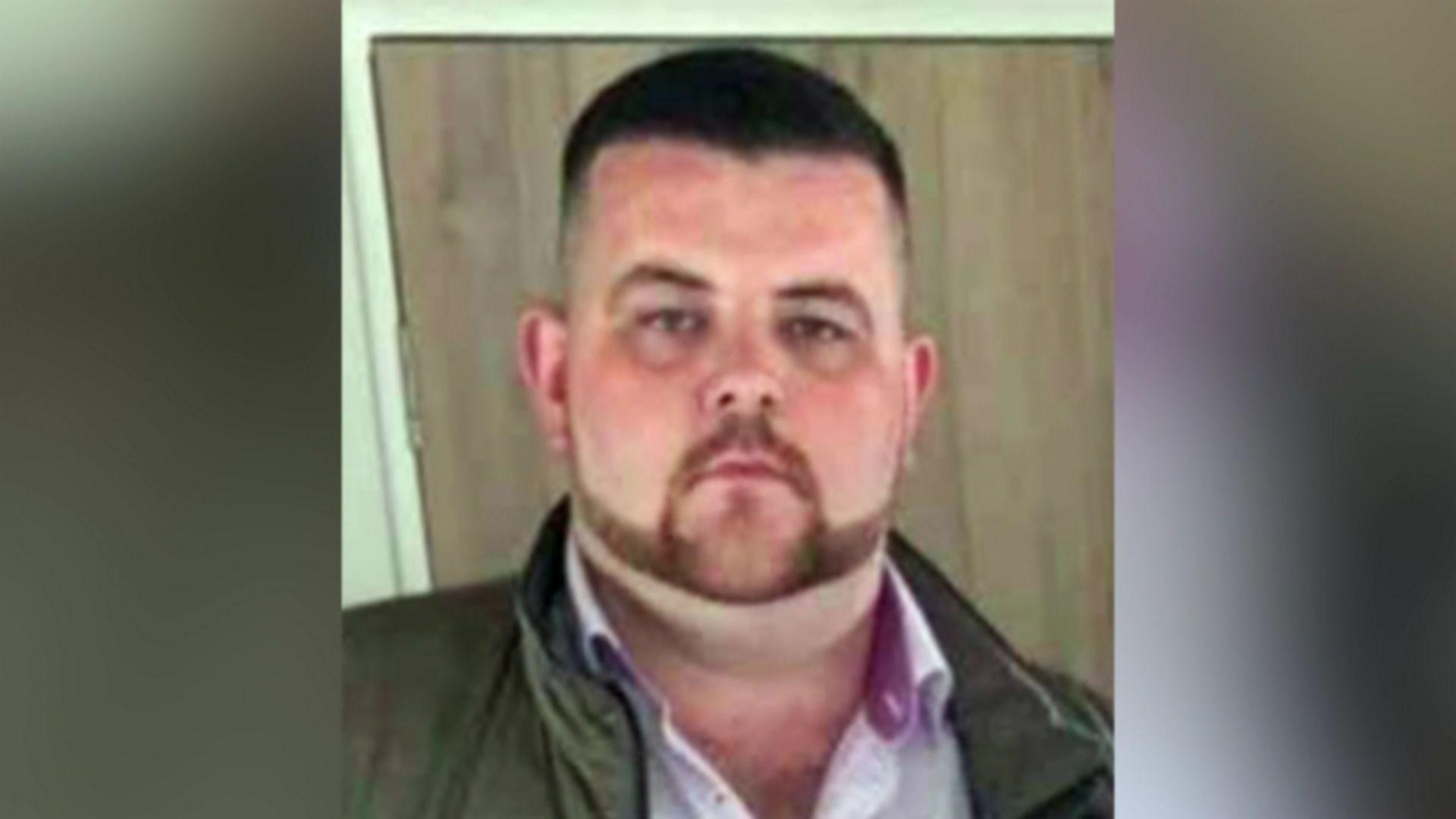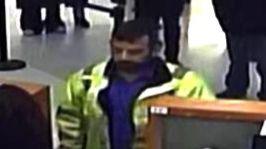NI brothers scammed $435k from my dad

Rebecca spoke to BBC News NI days after the McDonagh brothers were jailed in the US
- Published
The daughter of an elderly US man who was scammed out of nearly half a million dollars by two Northern Irish brothers has questioned their remorse, asking: "Are they sorry they did it, or sorry they got caught?"
Rebecca's father David was one of a number of older people defrauded of hundreds of thousands of dollars by Patrick and Matthew McDonagh from Irvinestown, County Fermanagh.
The pair posed as home repair men in multiple US states carrying out botched work and pressurising victims to pay huge sums of money.
Their crimes were described by the FBI as a "travelling roadshow of fraud".

Matthew McDonagh was filmed on CCTV cashing the cheques of one of their victims
After pleading guilty, they were sentenced to 18 months in jail, ordered to pay restitution to the victims and will likely face deportation after prison.
David, who told BBC News NI he felt pressured into handing over $435,000 (£346,000) to the McDonaghs, also received an apology from the brothers in a Washington court last week.
However, Rebecca criticised the sentence as a "slap on the wrist", adding they "got away with it".
She said she was "not holding her breath" over restitution money being paid once they are deported and questioned whether their remorse is real.
"I have a hard time believing they are truly genuinely sorry, because this has been a lifestyle of choice for both of them.
"They took a lot of money. It is quick, quick easy money, I get it. Just between one other victim and my dad it was almost $1m (£796,000)," she added.
"Part of my victim impact statement that I read was that: 'I hope that you're never in a position of being an old man where you have to rely on people and potentially somebody could take advantage of you.'
"And I think they're very much thinking: 'Here and now, quick buck, take care of my family - bam bam bam, we're never going to get caught.'
"And now all of a sudden, they're caught, and I very much hope they can turn around their lives."

Patrick McDonagh told three victims he was affiliated to a legitimate construction firm, which was not true
The brothers entered the US illegally in the summer of 2022 and face deportation once they finish jail time, although it is not yet clear whether they will be sent to Northern Ireland or the Republic.
Rebecca has called on the authorities in whichever jurisdiction to track the brothers to ensure they repay victims.
"The likelihood of anyone in Ireland following them and actually ensuring that they pay back restitution to my dad and additional other victims is highly unlikely, the FBI told us they've never seen that happen," Rebecca said.
"The ball is in your court. It is your responsibility to check them once they're extradited."
'They started cleaning out my finances'
David told BBC News NI he never once thought the McDonaghs were "actually crooks".
They approached him in January, claiming he had a hole in his roof which they offered to fix. Later, they claimed the foundation in David's home was cracked and they could repair it.
However, there was no hole in the roof and his foundation did not need to be repaired.
"I was getting more flustered than anything but at the same time they talked like they knew what they were doing," David said.
"Then they started cleaning out my finances.
"I'd make a comment every now and then like: 'What are you trying to do? Rob me broke? I need to survive for quite a while more I think.'
"But they kept on insisting they needed the money for materials and pay their labour.
"I didn't feel threatened, I just felt pressured, that loud voice," David recalled.
"I reluctantly went along with them until they told me they needed to pay taxes."
After Rebecca told the bank to block the cheques, the pair called him three to five times a day for five days and kept arriving to the home.
Rebecca said alarm bells were raised when she realised the same men went from doing simple moss removal to foundation work.
"It wasn't until he actually told me the number that he'd paid them, and that is when I knew that something had happened and this was wrong.
"The hardest for me to digest was that he felt uncomfortable. He wanted to stop it but didn't know how."
Related topics
- Published17 December 2024
